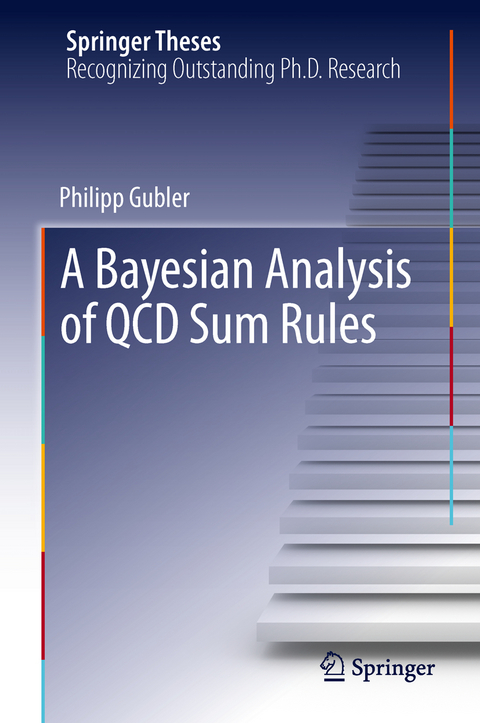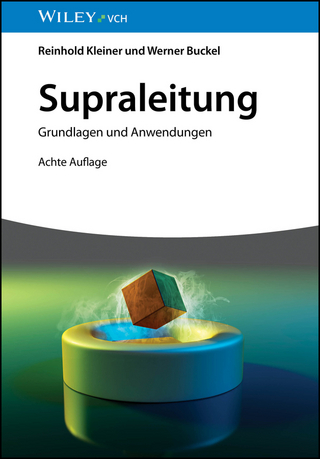
A Bayesian Analysis of QCD Sum Rules
Seiten
2013
Springer Verlag, Japan
978-4-431-54317-6 (ISBN)
Springer Verlag, Japan
978-4-431-54317-6 (ISBN)
This is a first-time accomplishment in the field.In this thesis, a reformed MEM for QCDSR is formalized and is applied to the sum rules of several channels: the light-quark meson in the vector channel, the light-quark baryon channel with spin and isospin 1/2, and several quarkonium channels at both zero and finite temperatures.
The author develops a novel analysis method for QCD sum rules (QCDSR) by applying the maximum entropy method (MEM) to arrive at an analysis with less artificial assumptions than previously held. This is a first-time accomplishment in the field.
In this thesis, a reformed MEM for QCDSR is formalized and is applied to the sum rules of several channels: the light-quark meson in the vector channel, the light-quark baryon channel with spin and isospin 1/2, and several quarkonium channels at both zero and finite temperatures.
This novel technique of combining QCDSR with MEM is applied to the study of quarkonium in hot matter, which is an important probe of the quark-gluon plasma currently being created in heavy-ion collision experiments at RHIC and LHC.
The author develops a novel analysis method for QCD sum rules (QCDSR) by applying the maximum entropy method (MEM) to arrive at an analysis with less artificial assumptions than previously held. This is a first-time accomplishment in the field.
In this thesis, a reformed MEM for QCDSR is formalized and is applied to the sum rules of several channels: the light-quark meson in the vector channel, the light-quark baryon channel with spin and isospin 1/2, and several quarkonium channels at both zero and finite temperatures.
This novel technique of combining QCDSR with MEM is applied to the study of quarkonium in hot matter, which is an important probe of the quark-gluon plasma currently being created in heavy-ion collision experiments at RHIC and LHC.
Dr. Philipp Gubler Tokyo Institute of Technology, Tokyo, Japan
Introduction and Review.- Introduction.- Basic Properties of QCD.- Basics of QCD Sum Rules.- The Maximum Entropy Method.- Applications.- MEM Analysis of the ρ Meson Sum Rule.- MEM Analysis of the Nucleon Sum Rule.- Quarkonium Spectra at finite Temperature from QCD Sum Rules and MEM.- Concluding Remarks.- Summary, Conclusion and Outlook.- Appendix.
| Erscheint lt. Verlag | 20.4.2013 |
|---|---|
| Reihe/Serie | Springer Theses |
| Zusatzinfo | XVI, 190 p. |
| Verlagsort | Tokyo |
| Sprache | englisch |
| Maße | 155 x 235 mm |
| Themenwelt | Naturwissenschaften ► Physik / Astronomie ► Atom- / Kern- / Molekularphysik |
| Naturwissenschaften ► Physik / Astronomie ► Hochenergiephysik / Teilchenphysik | |
| Naturwissenschaften ► Physik / Astronomie ► Quantenphysik | |
| Naturwissenschaften ► Physik / Astronomie ► Theoretische Physik | |
| Naturwissenschaften ► Physik / Astronomie ► Thermodynamik | |
| Schlagworte | Bayes’ Theorem • Borel Sum Rule • Bottomonium at Finite Temperature • Charmonium at Finite Temperature • Gaussian Sum Rule • MEM Analysis • Operator Product Expansion • Parity Projection • QCD sum rules |
| ISBN-10 | 4-431-54317-1 / 4431543171 |
| ISBN-13 | 978-4-431-54317-6 / 9784431543176 |
| Zustand | Neuware |
| Informationen gemäß Produktsicherheitsverordnung (GPSR) | |
| Haben Sie eine Frage zum Produkt? |
Mehr entdecken
aus dem Bereich
aus dem Bereich
Buch | Softcover (2024)
Wiley-VCH (Verlag)
CHF 83,85


